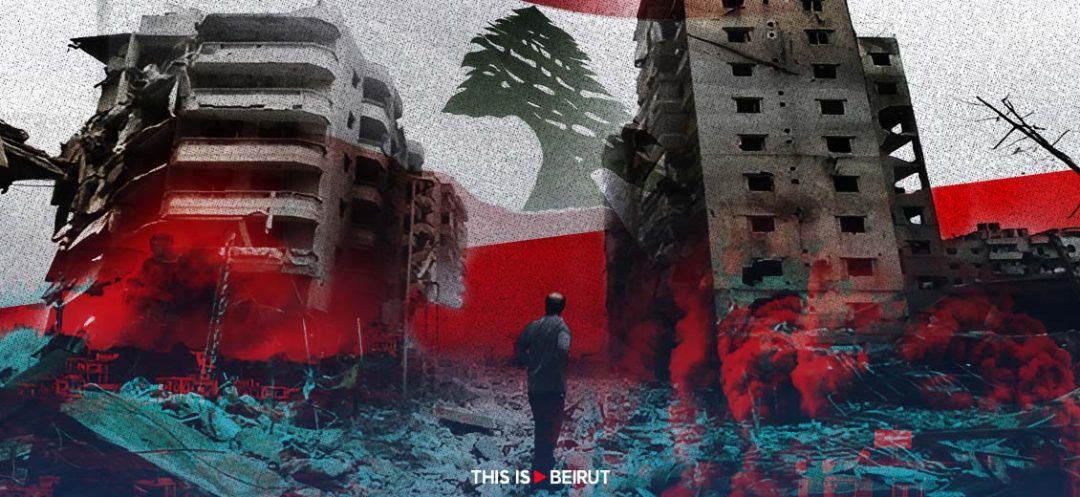- Home
- War in the Middle East
- Why Does Lebanon's History Keep Repeating Itself?

As the situation grows more dire in South Lebanon, with almost 80,000 residents displaced and over 20 citizen deaths, the entire country is worried about a repeat of the July 2006 war scenario.
In the last two decades, Lebanon has repeatedly served as the backdrop for aggressions, bombings and wars. Lebanese people ought to ask themselves why their history always repeats itself, so often and so soon.
Lebanese schools’ history curriculums are severely lacking. The last recorded event in Lebanese history books is the Independence that goes back to the end of the French mandate in 1943, and the establishment of a Lebanese Republic. The violent 15-year war between 1975 and 1990, which cost the lives of over 150,000 people, is not even mentioned in classrooms.
Students then fill this gap in their historical background in their homes and communities. With Lebanese history being so violent and recent, no two students end up with the same recollection of events.
According to author and historian Zeina Abdallah, we all learn from our families who are politically biased. “The problem with this reality is that we’re only learning a subjective version of history, which is often an accumulation of biases,” Abdallah added. “No one has an accurate recollection.”
In Lebanon, recollections of history defer from one political group, or even one religious community, to the other.
According to a historian and researcher at Saint Joseph University (USJ) who spoke to This Is Beirut, sectarian institutions in the country put in a systematic and proactive effort “to solidify sectarian myths, to preserve and protect the idea of the group.” For example, Hezbollah produced its own history book, which it teaches at its Mehdi schools.
“It's not history for the sake of history, but mostly for political agendas,” he added, in other words, another attempt to keep different communities in the country divided by their uncorrelated historical narratives.
With this separation comes the alienation of communities from each other. This is the case today as many people do not view the conflict in South Lebanon as an attack on Lebanese people, but just as another area that is being bombarded because of Hezbollah.
The consequences of having different ideas of what happened not only during the Civil War, but even during the Syrian occupation in 2005, the July 2006 war, or even the ongoing war along the border today, are more dire than we might believe.
As Kamal Salibi very famously wrote, most of the conflicts during the Civil War were waged over each group's interpretation of Lebanese history.
But the bigger problem according to USJ’s researcher is not the multiple narratives, but the denial of our sordid history.
“The bigger issue is history is not even discussed, to begin with. The way educators do not even mention it because they think it is controversial. But not addressing it is counterproductive, you’re walking into a self-fulfilled prophecy,” he stated, “We can have a way of teaching history while taking into account all narratives, there is no need for it to be unified. A minimum is having students acquainted with the discussions at the time.”
This sentiment is echoed by multiple Lebanese historians. Abdallah even suggests that tracking and studying multiple narratives would be beneficial in classrooms.
“Each party or religion can document its recollection,” she proposes. “Then people can read all the discussions, which can help them build a critical analysis of who to follow and what to believe.”
In the last two decades, Lebanon has repeatedly served as the backdrop for aggressions, bombings and wars. Lebanese people ought to ask themselves why their history always repeats itself, so often and so soon.
Lebanese schools’ history curriculums are severely lacking. The last recorded event in Lebanese history books is the Independence that goes back to the end of the French mandate in 1943, and the establishment of a Lebanese Republic. The violent 15-year war between 1975 and 1990, which cost the lives of over 150,000 people, is not even mentioned in classrooms.
Students then fill this gap in their historical background in their homes and communities. With Lebanese history being so violent and recent, no two students end up with the same recollection of events.
According to author and historian Zeina Abdallah, we all learn from our families who are politically biased. “The problem with this reality is that we’re only learning a subjective version of history, which is often an accumulation of biases,” Abdallah added. “No one has an accurate recollection.”
In Lebanon, recollections of history defer from one political group, or even one religious community, to the other.
According to a historian and researcher at Saint Joseph University (USJ) who spoke to This Is Beirut, sectarian institutions in the country put in a systematic and proactive effort “to solidify sectarian myths, to preserve and protect the idea of the group.” For example, Hezbollah produced its own history book, which it teaches at its Mehdi schools.
“It's not history for the sake of history, but mostly for political agendas,” he added, in other words, another attempt to keep different communities in the country divided by their uncorrelated historical narratives.
With this separation comes the alienation of communities from each other. This is the case today as many people do not view the conflict in South Lebanon as an attack on Lebanese people, but just as another area that is being bombarded because of Hezbollah.
The consequences of having different ideas of what happened not only during the Civil War, but even during the Syrian occupation in 2005, the July 2006 war, or even the ongoing war along the border today, are more dire than we might believe.
As Kamal Salibi very famously wrote, most of the conflicts during the Civil War were waged over each group's interpretation of Lebanese history.
But the bigger problem according to USJ’s researcher is not the multiple narratives, but the denial of our sordid history.
“The bigger issue is history is not even discussed, to begin with. The way educators do not even mention it because they think it is controversial. But not addressing it is counterproductive, you’re walking into a self-fulfilled prophecy,” he stated, “We can have a way of teaching history while taking into account all narratives, there is no need for it to be unified. A minimum is having students acquainted with the discussions at the time.”
This sentiment is echoed by multiple Lebanese historians. Abdallah even suggests that tracking and studying multiple narratives would be beneficial in classrooms.
“Each party or religion can document its recollection,” she proposes. “Then people can read all the discussions, which can help them build a critical analysis of who to follow and what to believe.”
Read more



Comments